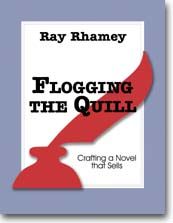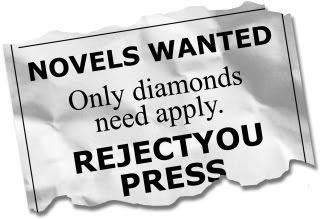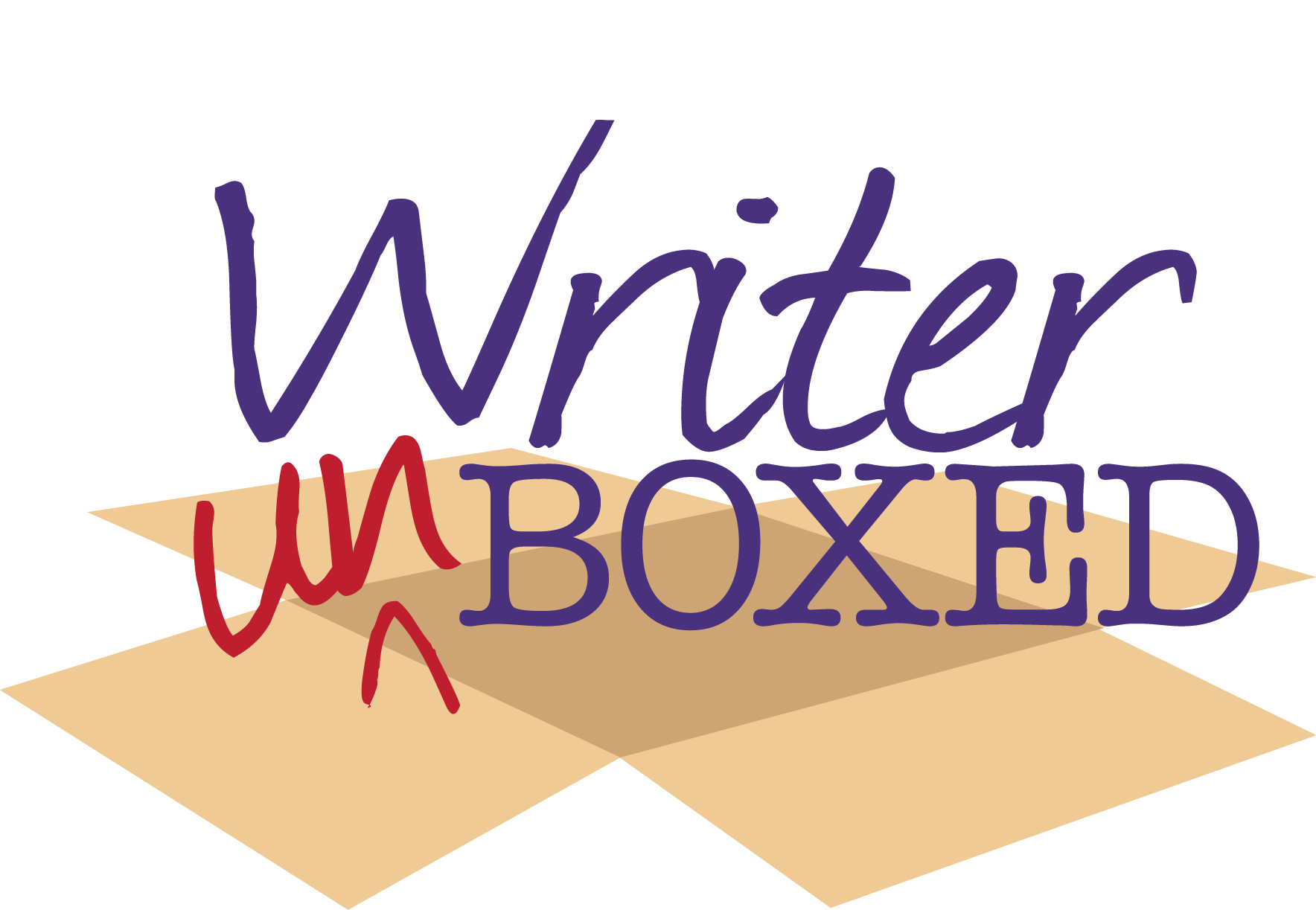Win Ray Rhamey’s new book!
By Writer Unboxed | May 11, 2009 |

UPDATE: Congratulations to Livia King, the winner of Ray’s book!
Thanks, everyone, for playing!
COMMENTING WINDOW IS OVER! STAY TUNED FOR WINNER!
Win a signed copy of Flogging the Quill, Crafting a Novel that Sells
Donald Maass, literary agent, says this about the book,
“Flogging the Quill is packed full of useful techniques to build a better novel.”
Ray Rhamey’s new storytelling craft book has been released and is now available at Amazon.com—but you can win a signed copy from Writer Unboxed. We’ll tell you how under the jump, but first this exclusive excerpt from the book’s first chapter to let you know why it could be a good idea to have a copy.
 Today’s publishing climate is tougher than ever. To get an agent, your work has to stand out from hundreds and hundreds of submissions. For your agent to get you a book contract, your novel has to cut through hundreds more.
Today’s publishing climate is tougher than ever. To get an agent, your work has to stand out from hundreds and hundreds of submissions. For your agent to get you a book contract, your novel has to cut through hundreds more.
You only have seconds in an agent’s hands
Established authors can ease into a story with description and mood (and even they aren’t safe in the bookstore), but unpublished writers face a very different reality—agents suffering through heaps of submissions and looking for reasons to reject while at the same time hoping for a story worth reading.
Dan Conaway, literary agent at Writers House and former executive editor, says,
“I know most of what I need to know about a writer’s chops in about a line and half.”
On her blog, Agent in the Middle, 20-year veteran agent Lori Perkins said this:
“Your novel has to grab me by the first page, which is why we can reject you on one page.”
The odds are excellent that an agent will see all the reasons she needs for passing—or for reading more—on your first manuscript page. Just like agents and editors who see rivers of submissions, as a result of seeing hundreds of opening pages for novels, I can tell you that the first page typically foreshadows what’s to come, story-wise and writing-wise. One quick skim usually provides all the reason I need to decide whether I will turn the page or decline the opportunity.
You still only have seconds on an editor’s desk
Let’s say you do land an agent, and the agent sends your story to an acquisitions editor. The same grim reality opens its maws—an audience of one with sharp, particular tastes who has an agenda that your story may or may not fit, who wants a great story but has a pile of submissions to go through, and for whom quickly finding a reason to pass is a good thing. One slip, and chomp, you’re gone.
Chuck Adams, Executive Editor, Algonquin Books, says,
“You can usually tell after a paragraph—a page, certainly—whether or not you’re going to get hooked.”
You still only have seconds at the bookstore
Okay, so your talent and work and luck pay off and your novel is published. Now it faces the cold, pragmatic reality of the bookstore. Sol Stein, a remarkable publisher/editor/author/playwright, writes in Stein on Writing of his observations in a bookstore.
“In the fiction section, the most common pattern was for the browser to read the front flap of the book’s jacket and then go to page one. No browser went beyond page three before either taking the book to the cashier or putting it down and picking up another to sample.”
What did those readers see in the novels they chose to purchase, and what did they fail to see in the rejects?
Story
Those bookstore browsers—and the agent and editor before them—either saw signs of a story they wanted to read, or they did not. They either felt compelled to keep reading, or not. That quickly. You do it too, don’t you?
It’s not like when you ask a family member, or a friend, or even a critique group to read your new novel—they have to read your stuff.
No, in the real world, you have a page or two. And if it’s that difficult with a bookstore browser who is on the hunt for a story to read, how tough do you think it is with a jaded, weary agent or a jaded, way-too-swamped acquisitions editor?
To move your book toward the cash register. . .or generate a request by an agent for the full manuscript. . .or make it to an editorial meeting by an acquisitions editor. . .you need to kick-start your story, sentence by sentence, on your opening pages.
And then you have to keep pages turning
Beyond openings, this book tackles the art and craft that you need in order to focus every facet of your talent on compelling a reader to turn pages.
1: Storytelling
Coaching on the art of storytelling—motivating characters, creating tension, gripping your readers so they want to keep reading, and reading, and reading—so you get a feel for what your narrative must do to capture readers and to make the story live in their minds. Then come craft tools you’ll utilize to make your story happen on the page.
2: Description
One of the most powerful, yet underutilized (or, sadly, sometimes over-utilized) tools for a novelist is description. I’ll show you how to create description that not only describes, but characterizes. You’ll write description that does far more than produce a simple snapshot of a scene or an action.
3: Dialogue
The other key tool for injecting life into your story is dialogue. You’ll see how to craft dialogue that delivers the experience of a scene smoothly, clearly, and powerfully.
4: Technique
I’ll illustrate a toolbox of craft techniques that include the all-important show/tell dichotomy and its impact on your story. I’ll cover point of view, head-hopping, and flashbacks.
5: Words
How well you create a story experience in a reader’s mind depends on the words you use—and don’t use. Are adverbs truly verboten, or can they be your friend? What are the weak words that sap power from your narrative?
6: Workouts
Finally, you go to work applying the techniques and insights you’ve gained to real novel openings created by writers like you.
If this book does no more than guide you to focus on and to see the true effect and impact of your writing, it will have boosted you several rungs up the ladder to creating a publishable novel.
Last, but not least, I suggest you consider posting the definition below somewhere within sight at your place of writing.
com-pel
verb
a: to force
b: to urge irresistibly
Win a signed copy.
All you have to do is leave a comment in the comment section by midnight on Wednesday May 13, 2009. We’ll have a drawing and announce the results on the blog. Only those living in the continential U.S. please.
Good luck!










Hello. I love both Writer Unboxed and Flogging the Quill. Both are on my daily blog rounds. Enter me in the drawing please!
Thanks.
I’ve had the privilege of reading Ray’s book (so don’t enter me in the drawing), and I have to say that it’s like having an editor sit you down and teach you some lessons–some of which are hard, others so intuitive that you say, “Duh.”
I’ll be reading this to my critique group. Many of them don’t realize that they only have a few seconds of an agent or an editors time.
Looks useful! Please enter me in the drawing.
Yes! Please enter me as well! I feel like I meed all the help I can get.
I would love a copy! Thanks!
I’d love a chance at a copy.
Publishing is scary stuff. Anything that can help me and my manuscript be better prepared is worth looking at. :-)
Sounds like a wonderful book. Count me in on the contest–thanks!
I’m with Darcy… WU and FTQ are excellent! I look forward to visiting both daily!
Ray’s Flogging the Quill First Page exercise is one of the best blogs around. And now, his book. Thanks, Ray
I love Ray’s Blog and would love a copy of his book.
great advice, and a great shortlist of things to keep in mind during the editing/revising process!
This is a book I’ll need before I’ll believe my novel is Finished (capital F). Now I’ll have to seek out the FTQ web site, too. Thanks!
It’s always informative to read Ray’s blog–I’m definitely excited to get my hands on that book! I work at my college’s writing center and when I need to set aspiring fiction writers right, especially concerning beginnings, I refer them to Flogging the Quill. Great site, and I’m sure a great book.
P.S. Enter me in the drawing? :D
Ray Rhamey rocks! I need his help and would benefit greatly from adding Flogging The Quill to my repertoire. Thanks!
Nice work Ray! I’ve been a reader over at Flogging the Quill for a while. There’s lots of food for thought there and I’m sure the book is the main course. Count me in!
Compel, Yes!
And I’d like any help to push my story there. Please enter me for the contest. Thanks
Enter me in the contest please & thank you!
Wow, sounds great. Please enter me in the contest!
I love Flogging the Quill and Writer Unboxed. Both blogs help me a lot with my writing. Please enter me in the drawing. Thanks!
This book sounds like a gem. Please enter me into the drawing.
This sounds like a great book–If I don’t win it, I’ll be picking it up this weekend! Thanks, Teri!
Definitely interested. Please enter me in the drawing.
This sounds like a fantastic book! I’d love a chance to win a copy.
Margay
Sounds like a very practical guide to writing. I’d love to win a copy but don’t enter me for the draw, I’m in Canada so I’ll have to buy to read more!
Ray’s awesome! His insights into what works and doesn’t in writing are dead on and useful to boot.
Best wishes to Ray and all his readers! ;)
Joseph